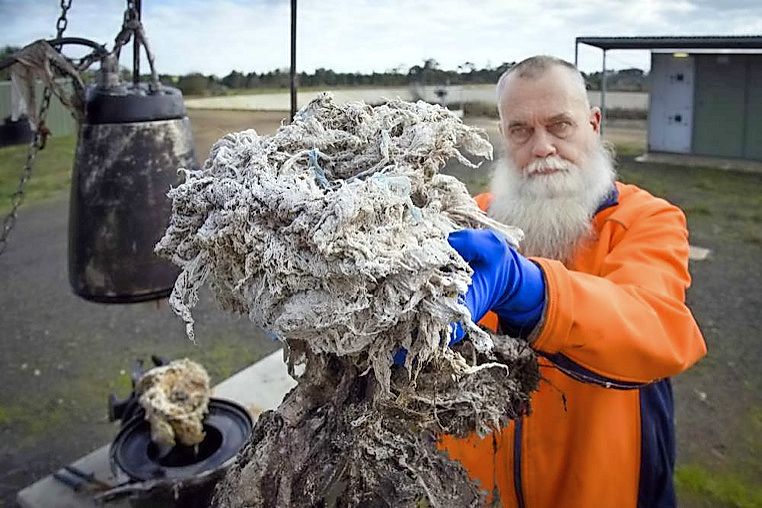
A Woodend mother had to watch $600 go ‘down the gurgler’ to learn an expensive lesson about so-called flushable wipes.
Rilla Healey had to call an emergency after-hours plumber this month to unblock a sewer pipe that was clogged with wipes.
Western Water has cautioned residents against using wipes, which plumbers have said cause up to 80 per cent of sewer blockages across the shire.
Sewer blockages can lead to spills of raw sewage into waterways, streets and even homes.
“We heard a gurgling noise coming from our pipes and then, suddenly, we had raw sewage coming up out of the shower and toilet,” Mrs Healey says.
“It was just pure wet wipes forming a solid one-metre clump in the pipe.”
Mrs Healey says her four-year-old had been using wet wipes for about a year, and only flushed one a day.
“We thought we were being quite careful – the advertised ‘septic and sewer safe’ instructions on the packets are completely false,” she said.
Macedon Ranges council plumbing contractor Rowan Fitzgerald said in facilities where wet wipes are used, 80 per cent of blockages are caused by wipes being disposed of incorrectly.
Mr Fitzgerald says childcare facilities and sports centres are most at risk.
“The trouble is the wipes stick in the drain, they don’t flow down, and they’ll stick on anything.”
He says the packaging of wipes is misleading, and some companies are going as far as handing out free wipes to childcare centres.
Western Water acting chief executive Graham Holt said wet wipes are not the only problem – rags, sanitary products, nappies, and personal items, such as cotton buds, should also never be flushed.
“Cooking oils and fats should never be poured down the sink, as they can also build up in pipes and cause blockages,” he said.
Mr Holt said not only are blocked sewer mains a major inconvenience, residents could be lumped with hefty clean-up bills too.
“We regularly inspect our 1200 kilometres of sewer mains, including monitoring with CCTV, to identify and fix any problems,” Mr Holt said.
“[It’s] easier if people don’t flush these things into the system in the first place.”






